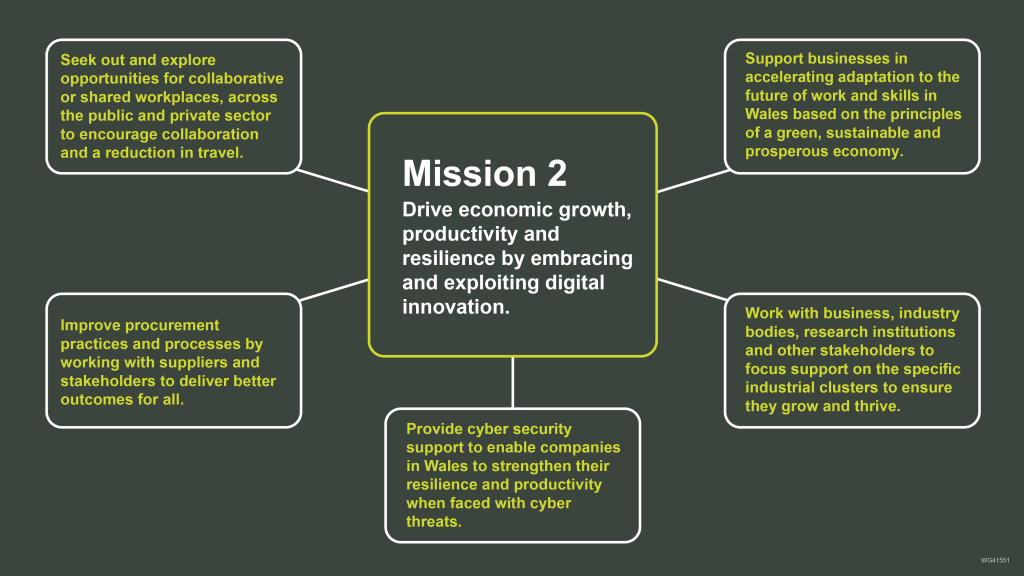As I’ve already said in my first blog, digital is not just about technology – it’s about people. The future of our economy is no different.
As we emerge from the pandemic and exit the EU, digital innovation will continue as a disruptive force in our lives. But this disruption has benefits. It will release people from mundane tasks so they can be more creative and productive. It will support higher skilled jobs of the future. It will open new markets for trade. It will help drive a well-being economy for the people and businesses of Wales.
Digital innovation is also changing the world of work and our economy. Professor Phillip Brown recognised this in his review for government – ‘Review of Digital Innovation’. This change is irreversible. We must embrace the benefits of digital innovation and automation, building a prosperous and healthy modern economy in Wales.
This Digital Strategy is designed to support these ambitions.
That is why our second Mission is to:
Drive economic growth, productivity and resilience by embracing and exploiting digital innovation.
So, what will we do?
We will capitalise on opportunities to exploit new technologies as a catalyst for investment, and to attract new talent to Wales. Taking on Professor Brown’s recommendations to accelerate industrial transformation, a focus of our action will be to encourage the evolution of digital innovation clusters. This will include working with industry, research institutions and other stakeholders to co-produce the partnerships that these clusters will need to thrive. For example, I’m excited at the proposals being put forward by the higher education sector in Wales for a Data Nation Accelerator, bringing together their capability with industry and the public sector to fuel innovation in data and AI.
We will support businesses in developing their workforce skills for the future, exploiting the shift we are seeing in the demand for Cyber and Artificial Intelligence skills in Wales.
As I have previously stated, we will support the growth of the digital economy in Wales by encouraging people to work flexibly and remotely, to help drive regeneration and economic activity in communities. This will enable workers to maintain productivity while encouraging a better work life balance.
In a later blog, we’ll discuss connectivity and the infrastructure that we want to develop and capitalise on to give businesses the best support they need to deliver our digital economy ambitions.


